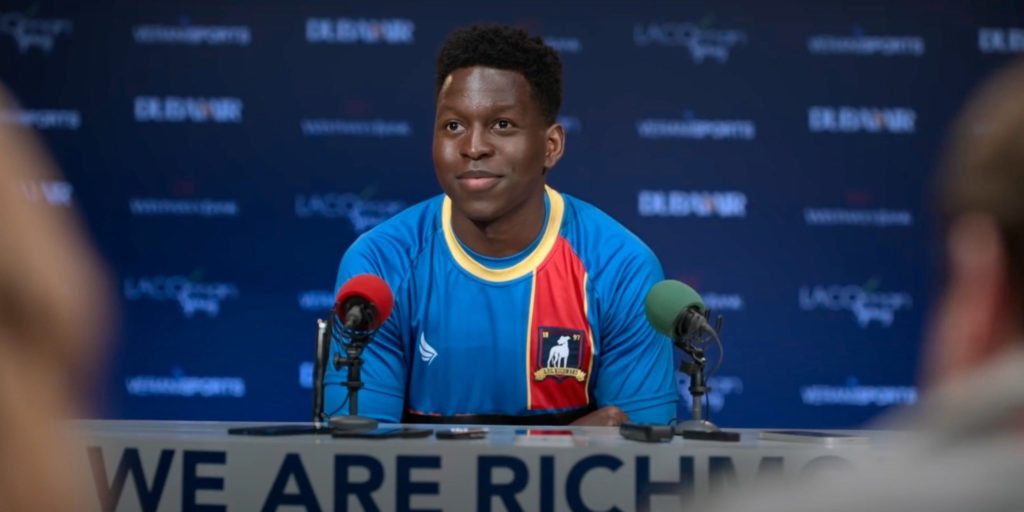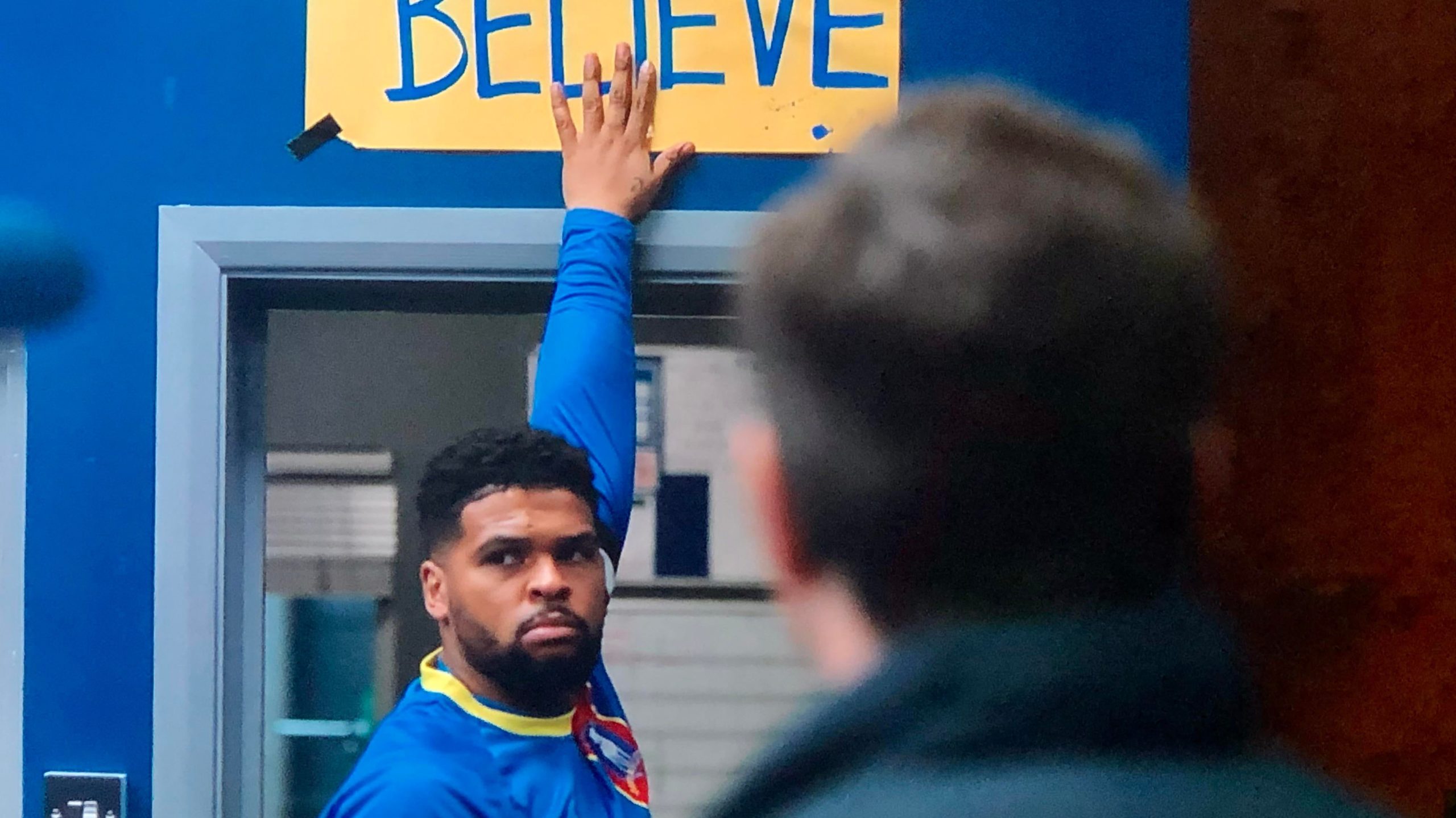Here you'll find helpful information about leadership, personal growth, and habits you can implement on your coaching journey.
Lots of topics to explore
welcome to
Peregrine Blog
healthy habits
Personal growth
leadership
inspiration
Some leaders are called to do more than manage projects and direct teams. They are called to form communities or to create movements. If you are one of those leaders, a key aspect of your calling is intentionally shaping the culture of your community or movement. In this blog, we explore 3 attitudes or practices for developing culture shaping leadership: gratitude, generosity, and generativity.

Gratitude
In the past few years, gratitude has gotten a lot of coverage. You find words like “thankful”, “grateful”, and “gratitude” itself splashed across journals, motivational posters, and all sorts of home décor. Similarly, you now find leadership experts and research all recommending a habit of gratitude. So, what more can be said? In this blog, I’m defining gratitude as the practice of identifying what and who you appreciate in your life and expressing that appreciation without fear that this will jeopardize your legitimate needs.
Gratitude is the practice of expressing appreciation without fear of jeopardizing your legitimate needs.
The second half of that definition is key because it helps us diagnose why we struggle with expressing appreciation. Specifically, we fear that expressing appreciation will de-legitimize our needs. For example, if we thank the office manager for a box of pens, she might start to wonder if we really needed it. Another fear is this: we fear that expressing gratitude will lead to indebtedness. For example, if you thank a co-worker for their part in a project then they might think you owe them. Or we (leaders in particular) fear that appreciation will undermine productivity. For example, if you thank someone you line manage for meeting a tight deadline then they might start to think meeting deadlines is an optional part of their job.
Fear’s Story
These fears stand on a two-part narrative. First, we shouldn’t give thanks for things that are expected – for things that meet needs. Second, because if we do give thanks our needs might not get met. To sum it up, gratitude jeopardizes our needs. Start by considering the example of the pens. You legitimately need the pens to do your job. Fear says that if you are grateful for the pens, they will shift from the category of need to the category of want. Getting the pens you need will become some sort of optional extra.
Next, consider the example of the co-worker. You legitimately need help from co-workers, constantly or from time to time depending on the nature of your role. Again, fear says that a heart-felt “thank you” moves that help from the category of reasonable and necessary to the category of a favour. A favour might or might not be given, and it puts you in debt.
Finally, there is the worker who meets the tight timeline. Fear says gratitude in that scenario runs the risk of moving deadlines themselves from the realm of a necessary aspect of job performance to the realm of optional extra. But does fear have to rule the day? And is that narrative accurate?
“I Appreciate You”
The character Ted Lasso, on the Apple+ TV show, hints that the answer to those questions might be NO. Ted Lasso is an American college football coach who arrives in England to coach a football (soccer) team. Within the first episode two things are blindingly obvious: Ted knows nothing about football as it’s played in England. And Ted is almost oppressively positive. A curious dimension of Ted’s positivity is his almost-catchphrase, “I appreciate you.” It is spoken with a disarming sincerity. What’s more is that it is Ted’s regular response to someone doing something everyone expects them to do. Turn on an episode and notice how often Ted is grateful for someone doing a named part of their job.

Culture Shaping Leadership: Honour
This is an interesting glimpse into a popular show, but what about culture shaping leadership? Actually, that’s exactly what Ted Lasso’s gratitude does. (It’s also why it makes for such surprisingly compelling television.) Ted’s appreciation undercuts fear and preoccupation with status. And it begins to shape a culture of honour. Ted’s base narrative is abundance. People do their jobs and so gratitude doesn’t jeopardize his needs. The response from the other characters is noteworthy. As fear and a focus on status fade, the team begins to focus on the bigger goals of the organization. Moreover, they begin to take positive risks to do more and be more. Coach Lasso shapes a culture of honour that leads to fullness and flourishing.
There is much more to consider about gratitude. For now, let’s turn to generosity.
Generosity
Generosity is another familiar word. It usually makes us think of charity and financial generosity, which is important. However, the leadership world has been highlighting generosity in a more broad sense as a leadership practice or attitude. Taking that direction, I am defining generosity like this: Generosity is the practice of giving (especially support, resources, and platform) without fear of impoverishing yourself or your organization.
Generosity is the practice of giving support, resources, and platform without fear of impoverishing yourself.
Once again, the second half of the definition is the key to diagnosing the reason why we struggle with being generous. We fear that generosity will devalue our expertise. For example, if we share our knowledge with a coworker then we might be passed over for promotion. Or perhaps we fear that generosity will diminish our status. For example, if we give authority to a direct report or a volunteer, others might see us as less of a leader. One fear has greater weight today. If we share our platform with a marginalized person we will dilute our influence.
Zero Sum Game
Fear’s underlying narrative here is the zero sum game. There is a finite amount of the things we value and everyone is competing for them. Therefore, when you give something valuable away your stock is reduced. To sum it up, generosity makes you poorer.
Consider the example of sharing knowledge with a co-worker. Knowledge is infinitely shareable. But fear says expertise only has value when the knowledge is rare. It denies that value exists in the knowledge itself. And so, our co-worker transforms from a team mate to a competitor.
Next, consider the example of sharing authority with a direct report or volunteer. We can delegate authority. However, fear says concentrated authority is a status-maker. It denies the reality of assigned authority (in addition to distorting the nature of positional authority!). As a result, the volunteer or direct report transforms from a contributor into a tool.
Finally, what about sharing our platform? YouTube and Tiktok prove (in the realm of social media) that an infinite number of people can share a platform. Fear says too many people in the spotlight kills influence. It denies that influence is relational and relational networks can grow. The person with little voice could have been a partner, but they remain a cog in a machine. Again, let’s ask if fear has to rule the day? Is its narrative true?
Preferring Others
Once more Ted Lasso is a credible counter example. Ted practices appreciation and he is also generous. Early on in the series we see Ted mentoring Nathan, the much bullied kit manager. Ted is also quick to credit Nate’s ideas in an interview. Moreover, Ted’s generosity stretches beyond football strategy. When player Sam Obisanya decides to tape over the name of the team’s sponsor on his uniform, causing a massive stir, Ted doesn’t speak for Sam. Recognizing his visibility as a middle aged white man, Ted turns the press conference over to Sam, intentionally giving the young Nigerian a platform.

Culture Shaping Leadership: Collaboration
Again, Ted Lasso models culture shaping leadership. Ted’s generosity weakens fear and preoccupation with status. It shapes a culture of collaboration. Once more we see that Ted’s base narrative is abundance. Investing in people enriches them, without diminish him. We already noted that as fear and a focus on status fade, the team begins to focus on the bigger goals of the organization. As Ted’s generosity begins to shape the organization, characters respond by partnering together and drawing forth courage and creativity from each other. Coach Lasso shapes a culture of collaboration that leads to fullness and flourishing.
There is much more to say about generosity, too, and we’ll discuss it in greater depth later. Let’s finish off with generativity.
Generativity
Unlike gratitude and generosity, generativity is not necessarily a familiar word. Most people encounter it in the context of Erik Erikson’s stages of development. However, we do talk about generations all the time. We’re constantly comparing Boomers, Millennials, and Gen Z. (And complaining about being left out if you’re Gen X like me.) And that’s where we find the key to understanding the word generativity. At its core it is about looking beyond the present to what comes after.
Part of the work of looking beyond the immediate is drawing up or developing emerging leaders. This last point is where a number of research papers connect leadership and generativity. However, in terms of culture shaping leadership, I am defining generativity as the practice of investing in the future (and we could extend that to others outside our organization) without fear of undermining your present sustainability. (For a deep dive on generativity and leadership see this journal article.)
Generativity is the practice of investing in the future without fear of undermining your present sustainability.
Again, the second half of the definition provides the key to understanding both what generativity is and does and why we might be resistant to it. We fear that investing in the future or the broader community in significant ways will stop us from being sustainable as a business or an organization. For example, we might fear that a focus on identifying and developing potential leaders will diffuse the energy of our organization. Or we might fear that acting generatively by investing in “for good” or community building projects leads to fiscal irresponsibility. Perhaps we more broadly fear that generativity will diminish our commitment to the present vision of the organization.
The Highest Good
Here we find that fear’s underlying narrative is that sustainability is the highest good. It tells us that we should aim to be self-sufficient or self-sustaining. Fear argues that focussing on our own internal goals ensures the survival of our community or movement. To put it simply, pursuing generativity comes at the cost of present effectiveness.
Think back on the example of identifying and developing potential leaders. We know that continuously raising up and developing new leaders is key for the continuing survival of any organization. But fear tries to convince us that when we give significant time and attention to developing followers into leaders, as an act of generativity, we are diverting energy away from our core work as an organization. Fear will allow us to invest in leaders out of necessity, but being motivated by a desire to invest in the future is somehow suspect.
Now think about the example of “for good” or community building projects. Fear tells us that investing time, resources, and personnel in projects that solely benefit others beyond our organization is an act of fiscal irresponsibility. This accusation is especially pointed when your budget comes through giving. Fear will ask us to justify spending that money on things that look like they are outside the scope of our organization’s vision.
This brings us to our last example. In general, fear’s narrative of the highest good will tell us that paying attention to anything outside our community or movement runs the risk of diluting commitment to our vision. Get your employees or volunteers invested in a food bank, fear whispers, and they’ll be less interested in our “core business”. But one final time, let’s ask if fear has it right.
Investing in Others
Here, too, Ted Lasso presents a counter example. In addition to expressing gratitude and acting with generosity, Ted also practices generativity. This isn’t surprising given that the character was an American college football coach. Yet even once transplanted onto the pitches of England, Ted still works to develop the young men he’s responsible for. We see Ted develop each player as individuals. Sometimes that is increasing their confidence, but other times it is encouraging them to develop their leadership.
Perhaps more importantly, though, we see Lasso forced to negotiate the tension between present sustainability and generativity. As the team faces relegation, Ted remains committed to the long view of development. The explosion between Lasso and his number two, Coach Beard, makes it clear that the two values can conflict and must be negotiated. Yet Ted remains committed to an attitude of generativity.

Culture Shaping Leadership: Care
Yet again, Ted Lasso is a credible model of culture shaping leadership. Lasso’s generative posture that looks beyond a single game or even a single season counteracts fear and the totalizing reign of status. It shapes a culture of care. Here, too, we see that Ted’s undergirding narrative is abundance. He develops leaders as a key part of the overall vision of the organization, negotiating the tension between present needs and future gain. Ted’s attentiveness to the future and the development of emerging leaders begins to shape the club. In response, the other characters start to pay attention to each other’s needs and express solidarity. Coach Lasso shapes a culture of care that leads to fullness and flourishing
Again, there is much more to generativity. But let’s close by considering why these 3G’s of culture shaping leadership are so transformative.
Abundance vs Scarcity
Gratitude, generosity, and generativity have transformative power because they push back against the narratives of fear that characterize a mindset or perspective of scarcity. By that I mean the deep-seated assumption that we work and live within the bounds of a world where there isn’t enough: “We are in a zero-sum game.” “Competition is the nature of existence.” “Look after hearth and home first.”
Practicing these 3G’s cultivates a perspective of abundance in us. We stop viewing others as competition or limited resources to be maximized and carefully leveraged. Instead, we start to think in terms of the development and flourishing of individuals, our community, and the culture at large. As we live out that new perspective, its key values start to take root in the culture of our organizations and movements: honour, collaboration, and care. And as we have seen people respond to those values by risking doing and being more, by drawing forth courage and creativity, and by attending to needs and experiencing solidarity.
Leaders who shape this kind of culture around them are leaders who create space for everyone to move towards the fullness of human existence. Be a leader who does more than keeps the lights on. Be a leader who takes people into fullness.
All Rights Reserved Peregrine Coaching & Consulting 2022© | Privacy Policy
Designed With Love by Hoffman Creative Co.